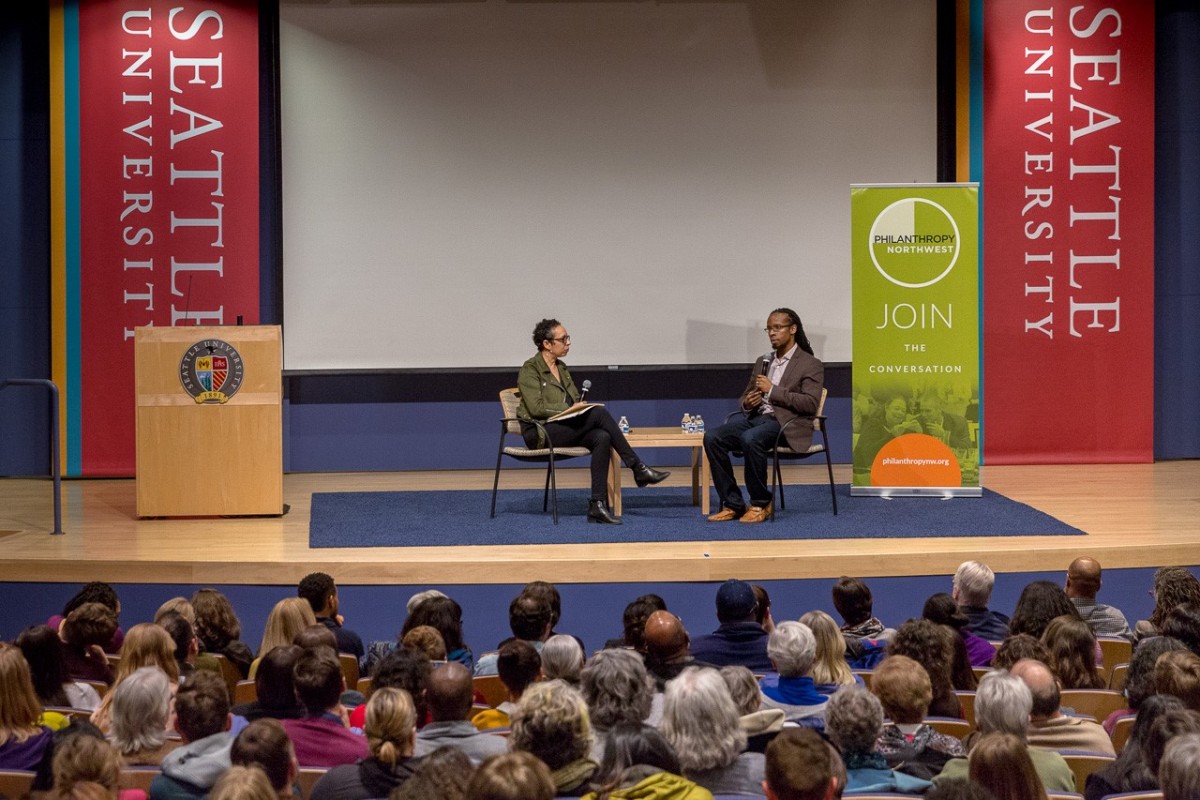“What is the point of existence if we’re not creating a better world for the people we love?” --Dr. Kendi

More than 400 people gathered on Friday, March 9 in Seattle University’s Pigott Auditorium to attend our inaugural Equity Speaker Series featuring a community conversation with Dr. Ibram X. Kendi, National Book Award winning author of Stamped From the Beginning: The Definitive History of Racist Ideas in America. The event was co-sponsored by Raikes Foundation, Seattle Foundation, Casey Family Programs, Seattle University and Elliott Bay Book Company.
In his remarks on his book, as well as in a Q&A from the stage with our Director of Learning Strategy Maya Thornell-Sandifor, Dr. Kendi urged a new vision and role for philanthropy—one that challenges discriminatory policies and actively works to dismantle racial inequities. Here are our key takeaways:
On Racism and Power
- Racism is the idea that a racial group is inferior in any way to any other racial group.
- Racist ideas blind us to racial discrimination, and a racist is someone who expresses a racist idea or supports a racist policy through their action or inaction.
- To understand racism, we must grasp the marriage between racist ideas and racist policies.
- Being racist – like being an antiracist – is not a fixed category.
- Being racist is not who you are but what you do/don’t do and what you say/don’t say in the moment, and in response to racist policies.
- Why do people and groups produce racist ideas? Are they ignorant or hateful people? Not usually.
- People produce racist ideas and policies to protect and maintain their wealth and power.
- The problem is not people, it is policy—and there is no such thing as a race-neutral policy.
- Policy either increases, maintains or reduces inequality.
- A racist policy is any policy that yields a racially unequal outcome, regardless of intention.
- Antiracist policies are those which reduce racially unequal outcomes.
On Being Antiracist
- There’s no philosophy or category of ‘not racist’ – instead, the construct is racist or antiracist.
- When you begin to understand the problem is not people but policies, you can become antiracist.
- Antiracism will free us from being manipulated by racist ideas.
- Whether with your time or with your fiscal resources, challenge racist policies.
- When you hear ideas in your sphere that are racist—say so.
- We need to bolster our children’s armor with antiracist ideas to prepare them for the world they live.
Thank you for your inspiring leadership, Dr. Kendi – we are so grateful for your insights and teachings!
Photo ©Philanthropy Northwest/Daniel Sheehan